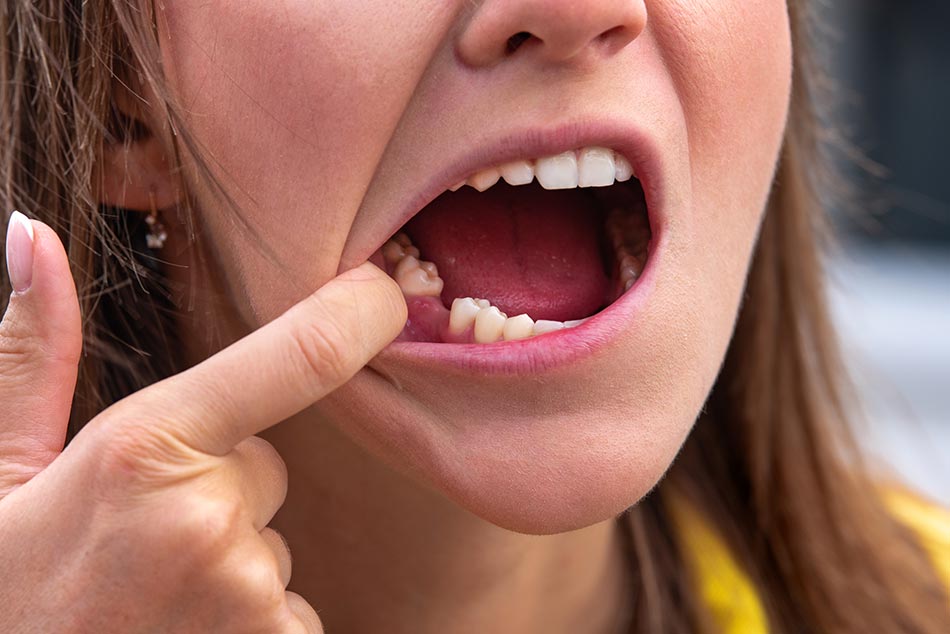The most common reason for tooth loss is gum (periodontal) disease. This is essentially a localized infection in the gums and supporting structures of the teeth leading to loss of bone. This can progress to the point that teeth fall out on their own or are deemed beyond repair or are too compromised to be useful and must be extracted. Dental caries (decay) can also progress to the extent that teeth are beyond the ability to be restored in function.
Decay can also lead to significant infection in the bone around the ends of the root(s) leading to necessary tooth extraction to prevent further infectious complications.
Poor oral hygiene If you don’t brush and floss daily, cavities and gum disease can occur, making tooth loss more likely to happen in the future. Dentists recommend to brush your teeth at least twice a day and to floss at least once a day. It is also advisable to visit your dentist every six months for a check-ups and cleanings.






